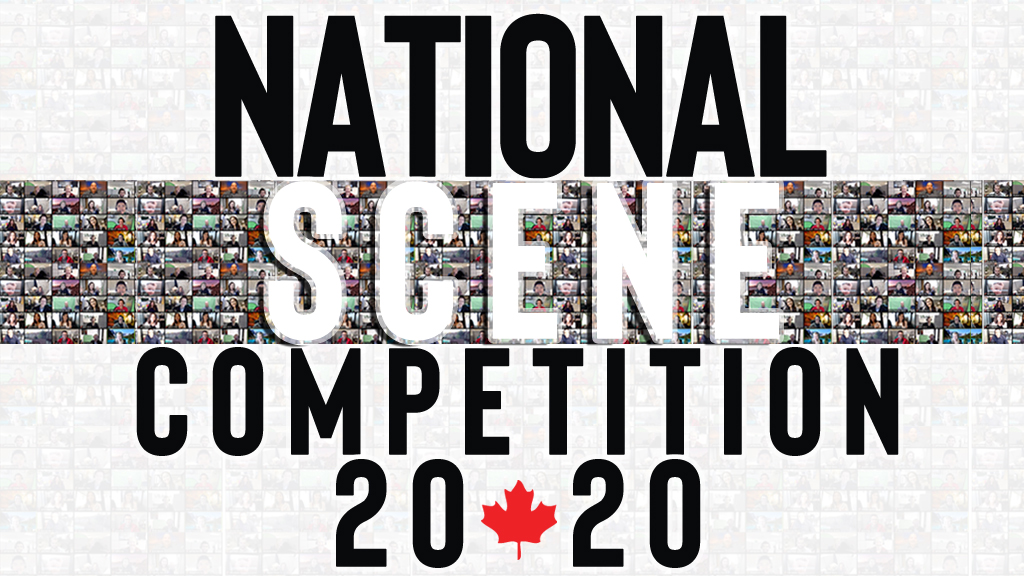HOW TO ENTER (READ CAREFULLY!)
1. This Month is Scene format ( Min 2 to Max 4 actors per scene)
2. Time limit: 3-5 minutes
3. Select a scene from any source including film, television or theatre
4. Record your submission using the “Tape Instructions” below
5. Upload a YOUTUBE or VIMEO link ONLY. Please use the “SHARE” link. Make sure the video is public, with no passwords
6. OPTIONAL: Please follow us on Instagram (@monologueslam) and Facebook (@MonologueSlamCanada) – If you’re not on social media that’s cool too…weird…but cool. Please note we aren’t notified of all tags and it may take over 48 hours and not all videos will be reposted
7. Fill out the application using the form below
CATEGORIES
1. Adult (18+)
2. Youth (17 & Under)
3. International (Non-Canadian residents)
*International entries are not eligible for cash prizes
TAPE INSTRUCTIONS
1. Record with any device.
2. Ensure clear audio and lighting (turn off any buzzing appliances)
3. Video orientation is LANDSCAPE (horizontal)
4. Label your video as follows: YOUR NAME – TITLE, AUTHOR – ‘MONOLOGUE SLAM’- DATE. For example, Jane Smith – Whiplash by Damien Chazelle – MONOLOGUE SLAM – April 27, 2021
5. No file transfers or downloads. Videos must be made PUBLIC. NO PASSWORDS!
6. Submit the SHORT version of your video link (the link when you hit ‘SHARE’)
SCORING
1. Material Choice – Does it suit you, is it castable for you?
2. Voice – Can we hear and understand you clearly? Are you pushing or too quiet
3. Submission quality – Sound, lighting, correct eye line, stay within the time limit (IMPORTANT: You will receive automatic deductions for not following any of the above requirements)
4. Listening – Are you hearing and being affected by whoever you’re speaking to, your scene partner or reader (real or imagined)?
5. Choices – Are you exploring the piece in order to make new and interesting choices?
6. Present Moment – Are you in the present moment, moment to moment, not anticipating or stuck in pre-planned ideas?
7. Stillness – are you grounded in the character, breathing, not making unmotivated movements ie fidgeting, unnecessary hand gestures, etc?
8. Mental Tension – Are the words coming up organically, or are you straining from memory resulting in erratic eyebrows, furrowed brows, eye tension ie perpetual staring?
9. Activity – What is your character doing other than speaking to inform the scene or their state? ie if you have a glass of wine…take a sip!
10. Privacy – are you self conscious, aware of the camera or inside the world of your character
11. Sensory – What are the physical sensations of your environment ie is the coffee hot, or the room cold?
12. Fun – are you enjoying the process? If not, why would we 🙂
NOTES FROM THE JUDGES
1. Have way more FUN
2. More vocal range/energy/to have things ‘pop’ and then come back down
3. Be more active physically and vocally. Pace could all be changed up to make it more active
4. A lot of them felt MONOTONE all the way through. Others were projecting all the way through
5. This is your chance to TAKE RISKS and push the envelope (while keeping it real and grounded)
6. The text can be explored further so that the work feels less ‘memorized’ and fresher
7. Read 9 Elements of a Great Monologue
RULES & REGULATIONS
Our mission is to provide a space for artists to develop and showcase their craft. We encourage artists to explore storytelling that engages different perspectives, pushes boundaries, challenges our worldview, and speaks to our deepest and most compelling truths – this is what art is about. If you are unclear about any of the rules or have questions concerning the content of your performance please contact us for clarification.
NO edited videos (Scene Slam excluded). This includes added sound effects, music, cuts, transitions, etc
NO hateful or discriminatory speech
NO nudity or explicit sexuality
Please include a content warning for potentially sensitive content (see below)
The decisions made by judges are final and not subject to complaint or alteration.
Rules are subject to change at the sole discretion of the Monologue Slam Canada organizers.
CONTENT WARNINGS
We understand that sometimes themes explored in work can be mature, emotionally challenging, or difficult in nature. Therefore, we ask that artists include a content warning (‘cw’ or ‘content warning’) to identify any potentially sensitive subject matter. For example [CW: violence, domestic abuse]. While it is impossible to know every subject that could be considered sensitive, a list of common ones is listed here.
SUBMISSION DEADLINE
Please refer to the deadline counter on our front page for deadlines.
ENTRY FEE!!
The Monologue Slam is free to enter. All we ask is your support by following us on Instagram, Facebook, or Twitter and sharing with other actors so we can grow this amazing community. We’re stronger together and your support helps us create a better industry for actors.



